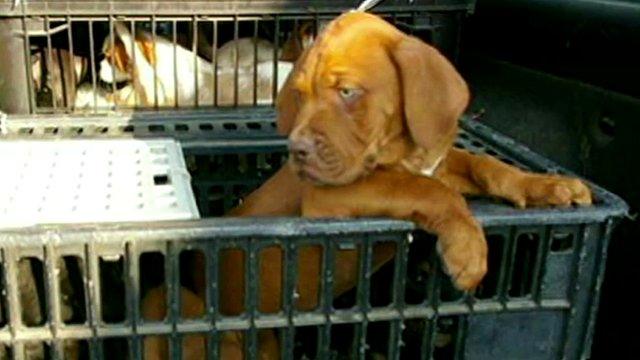Illegal puppy imports 'more than treble' in three years
- Published
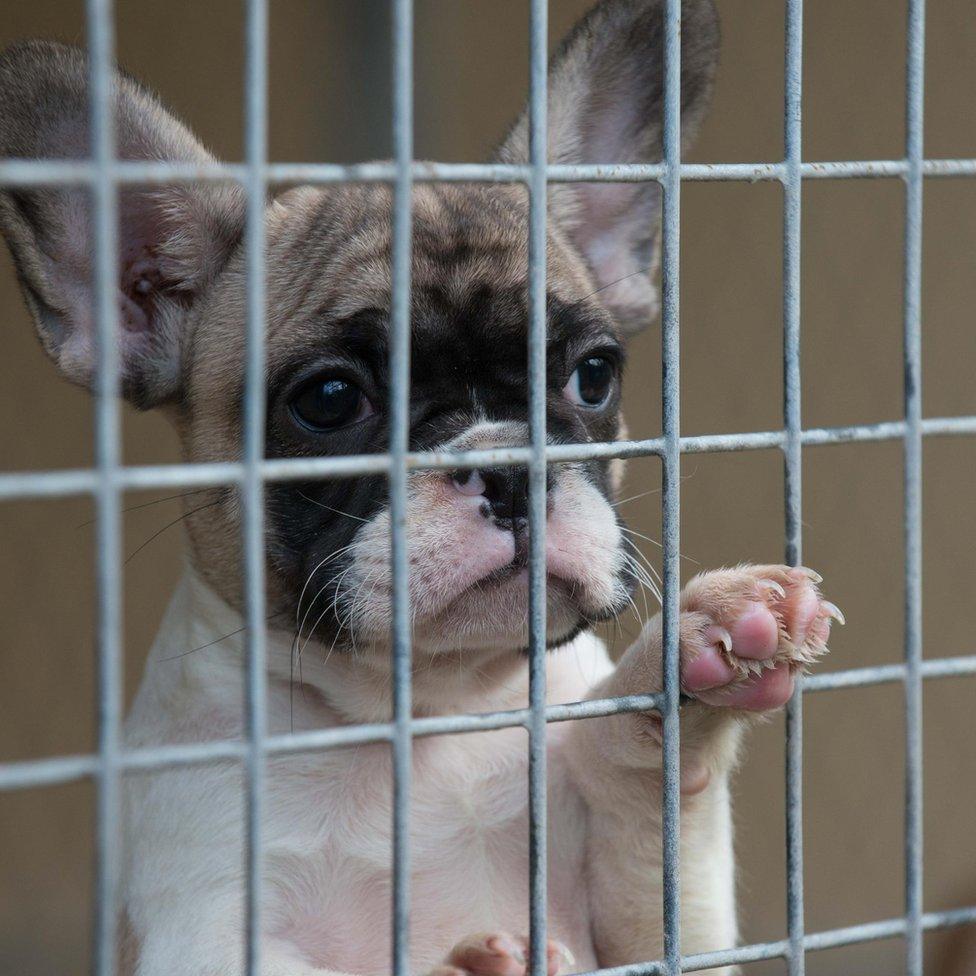
Pet owners have been urged to buy from reputable dealers
The number of illegally-imported puppies stopped at Britain's borders has more than trebled in three years, the BBC has learned.
Officials found 208 "illegally landed" dogs in 2014, rising to 688 in 2016, according to government figures.
Animal charities said thousands of dogs, which are often bred in "appalling conditions" on puppy farms, are brought into the UK each year.
A number of groups have called for rules on imports to be tightened.
David Bowles, from the RSPCA, said: "The scale of the illegal importation of puppies into this country is truly shocking.
"Thousands of dogs arriving at our shores every year may well have started their lives in appalling conditions on a puppy farm where their health and welfare came second to money and profits."
The RSPCA said the age puppies can be brought into the UK should be raised from 15 weeks to six months, with the Dogs Trust saying such measures "would eliminate the abhorrent illegal puppy trade overnight".
One woman described how she re-homed a bulldog that was originally brought into the country illegally, but died soon afterwards.
Karina said: "They make these homes up.
"You think you're going to visit a nice home, family home, with pictures of dogs everywhere, and you're visiting these puppies and it all seems very much as it should.
"Unfortunately that's not the case - and that's just from the little bit of research I've done."
She warned other potential pet owners to think twice and not rush into anything without doing their homework first.
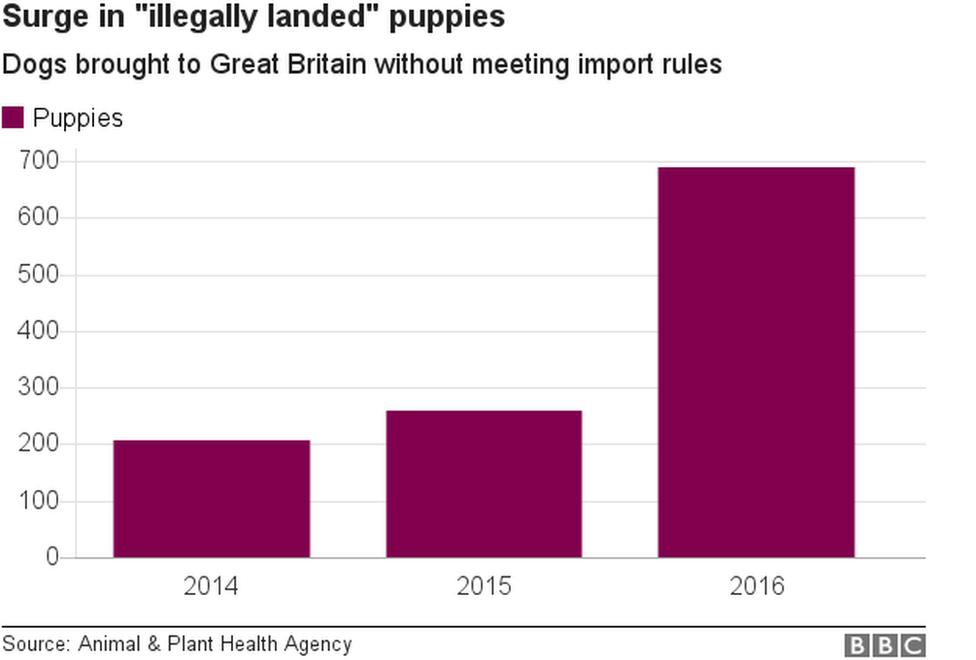
The all-party parliamentary group for animal welfare said: "We believe raising this age to six months would make it easier for enforcement agents to age puppies better, reduce the incentives for illegal puppy dealers to import puppies given that they are at their most desirable between the ages of two to three months, and raise welfare standards in puppies being bred in the UK."
A Defra spokesman said the UK had one of the toughest pet border-checking regimes, but pet owners could help by buying puppies from reputable dealers.
He said: "We also carry out additional random checks which help to ensure puppies are properly vaccinated and are old enough to travel."
The Animal and Plant Health Agency (APHA), which provided the data, said "illegally-landed" did not necessarily mean smuggled but referred to any animal which did not meet import requirements and would need to be quarantined under anti-rabies legislation.
Since December 2015, the AHPA said a new intelligence-led approach at Dover aimed at disrupting illegal imports was "yielding positive results".
The APHA said it was working with Dogs Trust and Kent County Council to re-home abandoned underage dogs.
Of the 437 dogs seized at Dover and Kent's Eurotunnel terminal since December 2015, 317 have been re-homed, the Dogs Trust said.
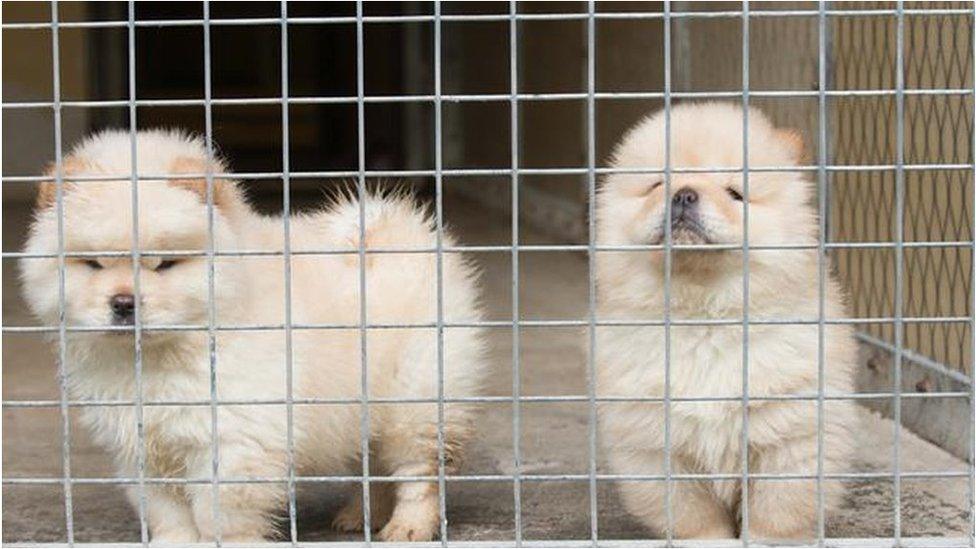
Campaigners want the age that puppies can be imported to be increased
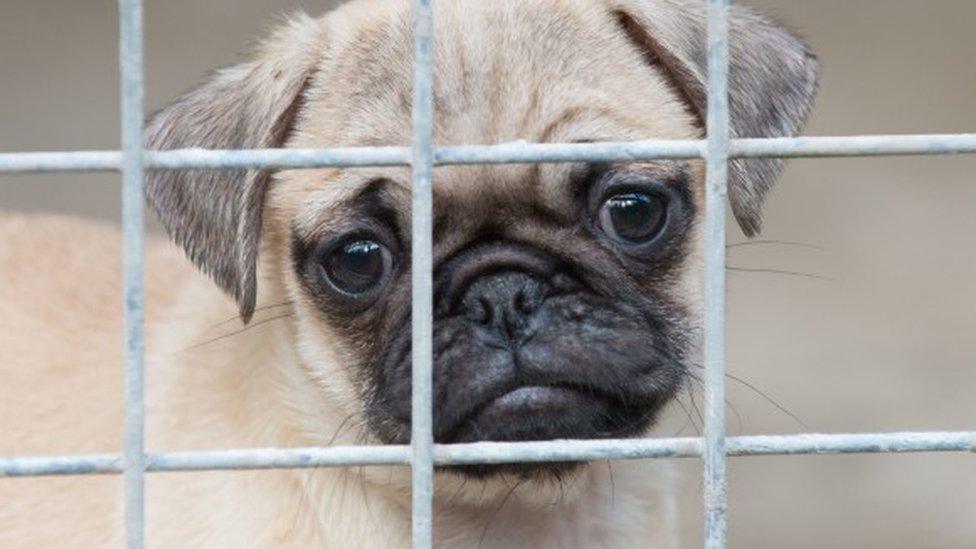
Charities have called for more resources to tackle the trade
Bringing dogs into the UK
A dog can enter or return to the UK if:
It has been micro-chipped
It has a pet passport or third-country official veterinary certificate
Has been vaccinated against rabies - it may also need a blood test
Dogs must also usually have a tapeworm treatment
Dogs not meeting the import requirements may be put into quarantine for up to four months, or refused entry if they travelled by sea.
Source: gov.uk website, external

- Published17 March 2016
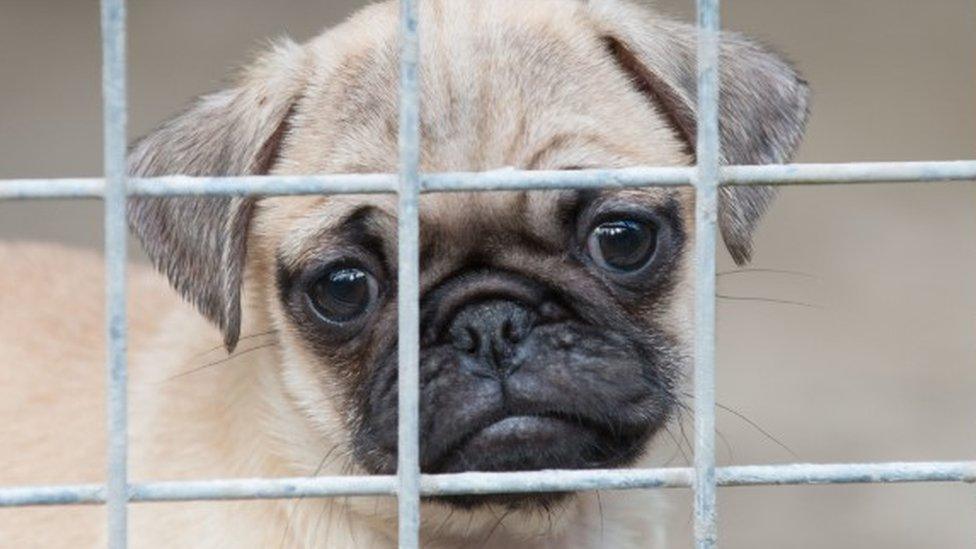
- Published14 November 2014
